- Learning time
- minutes
- First play time
- 45 minutes
Glasgow
Designed by: Mandela Fernandez-Grandon
Glasgow is a two-player game where you are merchants at the forefront of Glasgow’s birth, gathering materials and constructing buildings upon the burgeoning city’s unusual – for Europe – grid-like system of streets.
A collection of 12 contract tiles and 4 architect tiles are laid out in a circle (representing the River Clyde), and each architect is dealt two random buildings. Players start with their merchant pieces on the first architect tile, and on their turns, move clockwise around the circle, placing their merchant on a new (empty) tile, and optionally taking the action from it.
By and large the actions are straightforward: most of the contract tiles allow you to gather resources in the form of steel, brick, gold, or the wild whisky, and the architect tiles allow you to pay these resources in order to build either of the buildings placed next to them (you can also pay gold to take extra build actions). There are a few wrinkles such as tiles that allow you to change the available buildings, or tiles that double the action of your next tile, but nothing too onerous on the brain.
However there are two things to consider in terms of how the game plays tactically: firstly, the player whose merchant is furthest-back on the ‘river’ is considered active: that means the temptation to jump far ahead is tempered by the fact to do so is gifting your opponent the opportunity of consecutive turns. Secondly, the building of the city itself: when you pay an architect for a building, the building tile is placed facing you – to denote ownership – in a shared 4×5 grid representing the city, where all new buildings must join up with what’s already been buily. Where you place them has considerable impact on their potential for either the in-game rewards (factory buildings can be triggered when other buildings are placed) or end-game points: parks score their number squared; tenements like to be next to other tenements, shops want to be on the corner of the grid and train stations reward a diversity of building ownership.
So there’s a battle of sorts playing out both along the river – where opportunities can be taken and denied – and here in the city, where Glasgow’s seemingly-benign teenage years are played out as a surprisingly feisty battle of blocking and brinkmanship. When the final building is laid down, the game ends and scores are tallied, with the victor toasting themselves with a nice glass of single malt.
The guru's verdict
-
Take That!
Take That!
There's nothing in Glasgow to alarm the pacifists, but despite the theme of construction, there's a seam of plans-hit-by-wrecking-balls running through it too - tiles nabbed, places blocked, whisky stolen!
-
Fidget Factor!
Fidget Factor!
Like almost any game the first couple of plays will be more ponderous than what follows, and the pauses will depend on the players. But it's not too lull-prone...
-
Brain Burn!
Brain Burn!
...because although the world is in theory your oyster, and you can travel as far down the river as you like, you really don't want to go too far ahead and shower your opponent with extra turns. This sense of economising-of-opportunites between the players keep things tight, and stop thinking time from sliding off the scale.
-
Again Again!
Again Again!
The set-up is variable, the building tiles come out randomly, but how the city gets built is really the ever-changing factor here in what keeps Glasgow interesting.


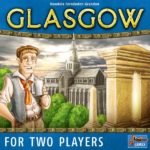
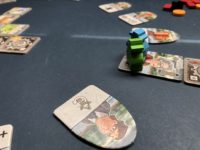
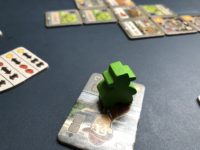
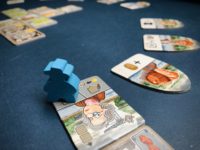
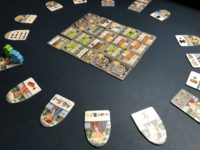


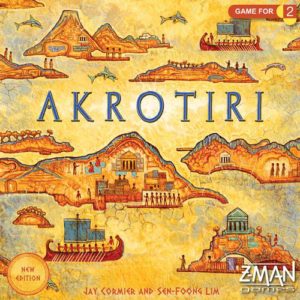
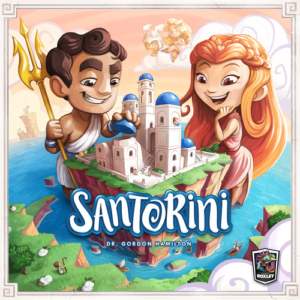
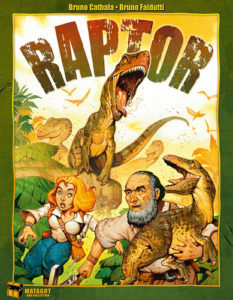
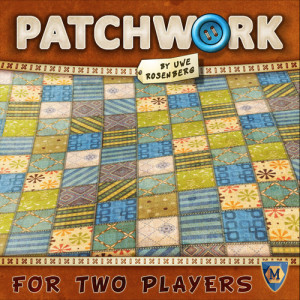
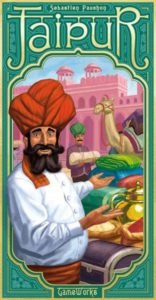
Sam says
An excellent two-player game that takes the last-goes-next conceit of something like Patchwork and adds in the tile-laying, city-building conceit. It might have felt bolted-on but instead, although I wouldn't argue it's realistically any less abstract than the game it reminds me of, this game-within-a-game makes Glasgow more intriguing - and certainly more combative - than it might first appear. So many games do this thing of gather-stuff to build-stuff, Glasgow could have had me glazing over, but instead, combining an accessible ruleset with deceptive depth of play, feels far fresher than it has any right to. Although I don't often seek out 2-player games, this is keeper for me, and one I look forward to playing again.